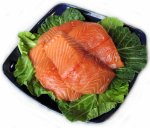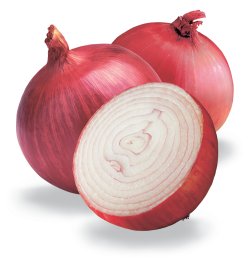Fish Oil and Heart Disease
Much research has been carried out on fish oil and heart disease. On this page you'll find the answers to these important questions:
- How fish and fish oil protect you from heart disease
- How does fish oil "thin" the blood?
- Ten ways fish oil fights heart disease
- How much fish should you eat?
- Which fish has the most omega-3 oils?
- What about fish oil supplements?
How Fish and Fish Oils
Protect You From Heart Disease
The benefits of fish and fish oil on human health have been well documented. It's their content of omega-3 fatty acids that is primarily responsible for many of their unique health benefits.
The best known condition prevented and treated with omega-3 fatty acids is
heart disease.
It's a fact that seafood eaters worldwide have less heart disease. Even
eating a tiny amount of fish can have a monumental effect on your
health.
A landmark Dutch study on fish oil and heart disease, found that eating, on average, a mere ounce (or 25 g) of fish a day cut the chances of fatal heart attack in half.
If you could look inside people's arteries, you could see that the healthiest ones belong to fish eaters and the most diseased ones to non-fish eaters. This is what some Danish researchers did in forty consecutive autopsies.
They measured the fish oil in the fat tissue, which revealed how much fatty fish the individual had eaten while alive.
Undeniably, the smoothest, cleanest arteries belonged to those with more omega-3 fat in their tissue and the most seriously clogged arteries belonged to those who had made the mistake of skimping on fatty fish.
If you have had a heart attack your best insurance against future attacks is to go immediately on a high fish diet.
In fact, eating fish boosts your odds of escaping subsequent heart attacks better than the traditional route of cutting down on foods high in saturated fats.
How Does Fish Oil "Thin" the Blood?
Many studies on fish oil and heart disease have demonstrated that eating fatty fish literally changes the shape of blood platelets so they can't lock together to form unwanted blood clots.
When you eat fish oil, your platelets release much less of the substance called thromboxane that instructs platelets to stick together. Thromboxane creates sticky platelets by stimulating them to swell up into little round balloons and then to grow spikes so that they can interlock with other platelets.
In this state they are called "activated" or "sticky", ready and able to clump together to form blood clots.
So fatty fish, by suppressing thromboxane, preserves the healthy normal disc shape of platelets so they can't cling together and form clots to plug up your arteries.
Ten Ways Fish Oil Fights Heart Disease
- Blocks platelets aggregation (clotting)
- Reduces blood vessel constriction
- Increases blood flow
- Lowers fibrinogen (clotting factor)
- Revs up fibrinolytic (clot-dissolving) activity
- Blocks cell damage from oxygen free radicals
- Lowers triglycerides (blood fats)
- Raises good HDL cholesterol
- Makes cell membranes more flexible
- Lowers blood pressure
How Much Fish Should You Eat?
Research shows that eating fish twice a week will provide distinct health benefits.
This translates into approximately 10 to 12 ounces (or 275 to 350 grams) of fish per week, which corresponds to 200 to 400 milligrams of omega-3 fatty acids per day.
But if you already have a heart condition or you've had a heart attack it seems that your best option is to double that amount or even treble it.
Which Fish Has the Most Omega-3 Oils?
The fattiest fish have the highest concentrations of omega-3 oils.
The best ones are:
- mackerel
- anchovies
- herring
- sardines
- wild salmon
- tuna
- halibut
- turbot
- bluefish
- trout
- sablefish
Fish with moderate to low omega-3 fatty acids include:
- catfish
- cod
- dolphin fish
- flounder
- grouper
- haddock
- perch
- pike
- red snapper
Shellfish generally have low levels of omega-3 fats. Having said that, that doesn't apply to Krill
oil, as it is an excellent source of Omega-3 fatty acids. Read
More
So it's important to choose the right type of fish to make sure you get a good amount of omega 3 oils.
For example, 4 oz. (110g) of salmon contains up to 3,600 milligrams of omega 3 fatty acids, while 4 oz. of cod contains only 300 milligrams.
What About Fish Oil Supplements?

What if you don't like fish? Or are concerned about contaminants in fish? You can certainly try fish oil supplements.
Be careful when you read the label: if it says 1000mg fish oil capsules, it doesn't mean there's actually 1000 mg of omega-3 fatty acids (EPA and DHA) in them but it will specify the actual amount of each one of them.
Often it will contain 180mg of EPA and 120mg of DHA for one 1000 mg capsule.
Please Note:
If you are on blood thinning medications, consult your physician before taking fish oil supplements as
they act in a very similar way. Anticoagulant and anti-platelet drugs are prescribed to prevent strokes
and heart attacks and their effect can be increased by adding fish oil supplements.
Related Articles in The Fish Oil Series:
- The Healing Power of Fish and the Benefits of Fish Oil
- The Best Fish Oil Supplement is not Made from Fish
- Krill Oil Benefits
- Fish Oil and Heart Disease
- Fish to Lower Blood Pressure
- Stroke Prevention with Fatty Fish
Articles in the Heart Disease Series:
- What Causes Heart Disease
- Reverse Heart Disease with
Healing Foods
- Healing Foods for Heart Disease
- Fish Oil and Heart Disease
- Beans and Heart Disease
- Onions for Your Heart
- Garlic and Heart Disease
- Heart Healthy Nuts
- Olive Oil and Heart Disease
- Treat Heart Disease with Fruits and Vegetables
- Wine for Heart Disease
- Green Tea for Heart Disease
Supplements That Might Help You Fight
Heart Disease
|
|
|
References:
https://www.ncbi.nlm.nih.gov/pmc/articles/PMC3217043/ - Fish Oil
for the Treatment of Cardiovascular Disease by Daniel Weitz, MD, Howard Weintraub, MD, Edward
Fisher, MD, and Arthur Z. Schwartzbard, MD (Accessed on 17/03/20)
Search for information on this site:
Receive Discover the Power of Healing Foods! Free
Newsletter
Supplements to Help You Fight Heart Disease
Even more effective than fish oil in preventing Heart Disease!
Nutrigold EPA Marine Fish Oil are
sourced from
ecologically clean seas and undergo selective absorption of pollutants like
heavy metals, dioxides and PCBs to ensure purity.
Nutrigold Magnesium Citrizorb®
provides 100mg elemental magnesium per
capsule in a highly bioavailable and bioactive organic citrate form.
Blend of natural botanicals including psyllium husk, fennel, garlic, inulin,
peppermint and papaya, L-Glutamine and Bifidobacteria
Homocysteine is a
common amino acid in your blood. You get it mostly from eating meat.
High levels of it are linked to early development of heart disease.
Nutrigold Superlec Plus is a natural lecithin powder, delivering high
potency phosphatidyl choline (32%) and plant sterols including
beta-sitosterol.
Most Popular
Pages:
The Best "Fish Oil" Supplement is Not Made from Fish
Bananas for High Blood
Pressure

Elimination Diet for IBS and Other Food
Sensitivities








New! Comments
Have your say about what you just read! Leave me a comment in the box below.